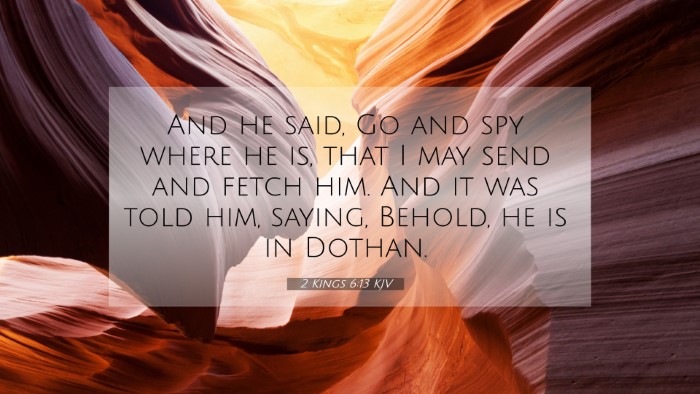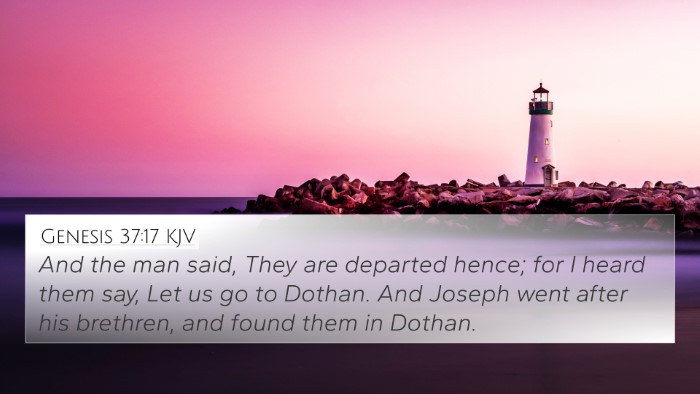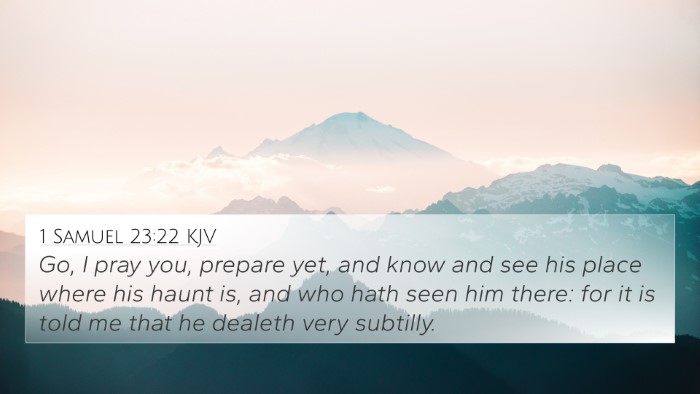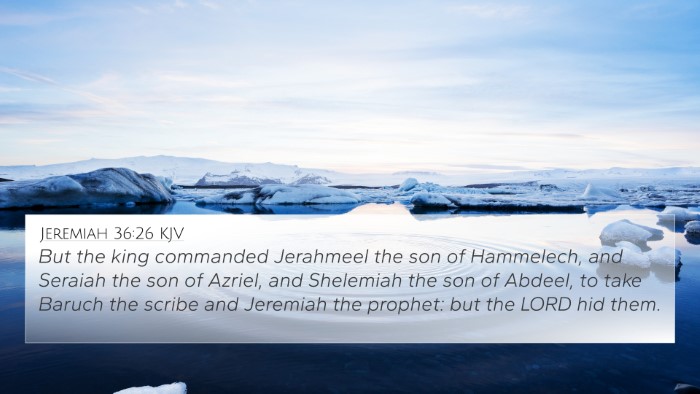Understanding 2 Kings 6:13
2 Kings 6:13 is a pivotal verse in which the king of Syria, concerned about the strategic wisdom of Israel, seeks to apprehend the prophet Elisha. Through this verse, we identify not only a moment of divine insight but also an exploration into the power of God’s revelation. This summary elucidates the meaning of the verse, drawing insights from esteemed public domain commentaries, including those of Matthew Henry, Albert Barnes, and Adam Clarke.
Verse Context
In the context of 2 Kings 6, we find that the king of Syria was at war with Israel. His plans were constantly thwarted by information that Elisha received from God, leading to him forewarning the king of Israel about attacks (2 Kings 6:8-12). This prompted the Syrian king to inquire where Elisha was located in order to capture him:
2 Kings 6:13 (KJV): "And he said, Go and spy where he is, that I may send and fetch him."
Commentary Insights
Each commentator provides unique perspectives that enrich our understanding of this verse:
-
Matthew Henry:
Henry reflects on the futility of opposing God’s plans. The king’s effort to capture Elisha signifies how human endeavors fail against divine guidance. This emphasizes the importance of being aligned with God’s will, as He directs the affairs of nations and individuals alike.
-
Albert Barnes:
Barnes highlights the misunderstanding of the Syrian king, depicting his ignorance about Elisha’s divine connection. This mirrors the ongoing conflict between spiritual insight and human strategy, illustrating how spiritual leaders can discern God’s will in moments of conflict.
-
Adam Clarke:
Clarke provides a detailed analysis of the fear that plagued the Syrian king. His desire to capture Elisha symbolizes the broader theme of rebellion against God’s prophets. Clarke suggests that it foreshadows the ultimate futility that arises from opposing God’s chosen instruments.
Themes and Analysis
This verse exemplifies several key themes:
- Divine Revelation: God's communication to His prophets allows them to navigate complex situations.
- Humanity vs. Divine Authority: The king’s plans against Elisha demonstrate humanity’s often futile attempt to thwart God’s purposes.
- Prophet's Role: Elisha’s position as a prophet serves as a reminder of God’s control over worldly affairs.
Related Bible Verse Cross-References
This verse connects with several significant scriptures, illustrating inter-Biblical themes:
- 1 Samuel 9:9: Explains earlier times when prophets were sought for counsel.
- 2 Kings 4:27: Highlights Elisha’s role and anointing as a prophet.
- Isaiah 44:25: Discusses God’s thwarting of wise counsel among the nations.
- Matthew 10:16: Jesus gives advice akin to that of Elisha in addressing the coming trials of His followers.
- Luke 21:15: Parallels the divine speech given to believers in facing opposition as Elisha did.
- Acts 5:39: Emphasizes the wondering of God’s plans among human scheming, in this case regarding the apostles.
- Romans 8:31: A reminder that if God is for us, who can be against us?
Conclusion
2 Kings 6:13 reveals a profound truth about the power of divine revelation and the assurance that God’s plans prevail over earthly conflicts. Each commentary provides depth to this insight, showing the richness of scriptural studies through cross-referencing and thematic connections. Whether exploring the prophetic role of Elisha or the vulnerabilities of earthly kings, this verse encourages believers to trust in God’s sovereign guidance amidst life’s challenges.
Further Study and Tools
For those interested in deeper biblical studies, consider utilizing:
- Tools for Bible cross-referencing, like a Bible concordance, to uncover deeper meanings.
- A Bible reference system for effective cross-referencing Bible texts.
- Comprehensive Bible cross-reference materials to explore thematic connections.











